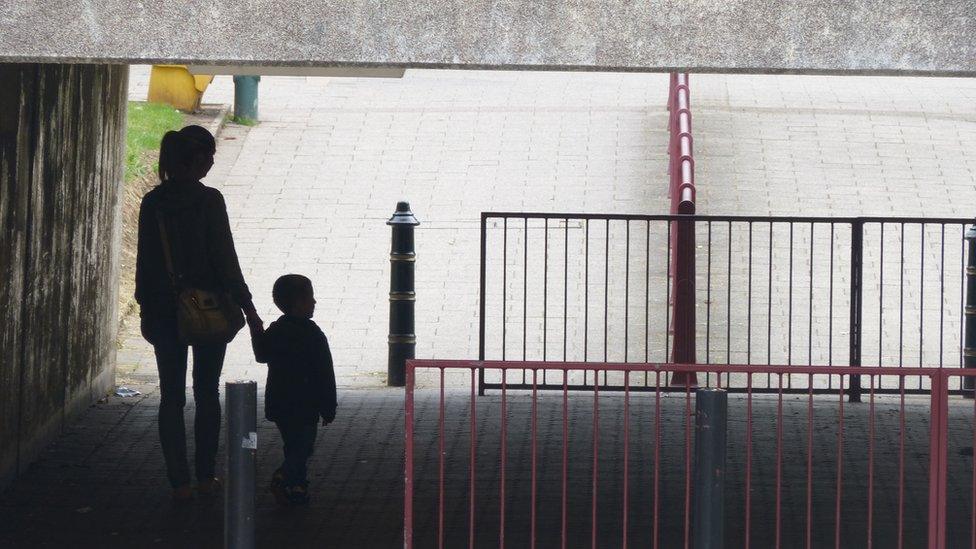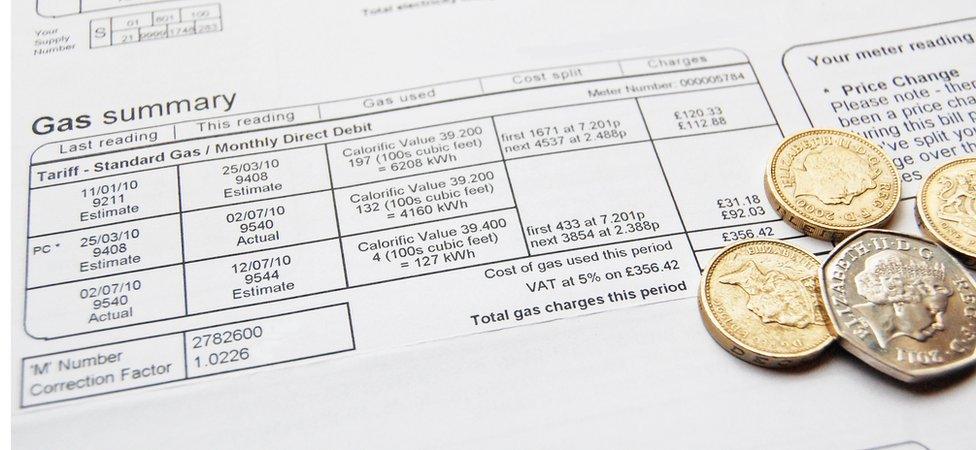Poorest families 'going without food or power'
- Published
- comments

Hundreds of thousands of the poorest families in Britain are going without basic necessities, according to two separate surveys.
Citizens Advice said as many as 140,000 households are going without power, as they cannot afford to top up their prepayment meters.
And the Living Wage Foundation - which campaigns for fair pay - said many of the poorest parents are skipping meals.
However the government said workers are now earning more, and paying less tax.
The survey conducted by Citizens Advice suggests that most households that cannot afford to put money in the meter contain either children or someone with a long-term health condition.
Some people are left in cold houses, or without hot water.
"It is unacceptable that so many vulnerable households are being left without heat and light," said Gillian Guy, chief executive of Citizens Advice.
"For some people self-disconnection is easily managed, but for many others it is an extremely stressful experience that can have harmful physical and emotional effects."

'Depressed and anxious'
One man who lives alone in a council property told Citizens Advice of his predicament.
"That's really stressful if you run out of electric," he said.
"Imagine, if you put yourself in your home and you've got no electric and you've got no gas so you've got no heating.
"You've got no entertainment, there's nothing to do. You're just sitting there waiting for the next day to come or until you can contact somebody.
"You feel depressed, you feel anxious, feel annoyed - all sorts of emotions."

Cost of living
A separate survey for the Living Wage Foundation suggests a third of working parents on low incomes have regularly gone without meals, because of a lack of money.
Around a half of those families have also fallen behind with household bills.

"These findings reveal the desperate choices low paid families have to make, and show why it's so important that more employers take a stand by paying the real Living Wage, based on what they need to live, not just the government minimum," said Tess Lanning, director of the Living Wage Foundation.
The unofficial living wage suggested by the foundation is £8.75 an hour, or £10.20 an hour in London.
More than 4,000 employers offer this living wage, which is designed to reflect the real cost of living.
The National Living Wage, which was introduced by the government, is the legal minimum paid to workers over the age of 25. On 1 April the rate went up to £7.83 an hour.
Earnings
The government has insisted that it is helping working families.
As a result of increasing the amount people can earn before paying income tax, it says typical tax payers are paying £1,000 less in income tax than they did eight years ago.
It said workers are also earning more in the first place.
"This is why we have increased the National Living Wage this month, so that the lowest-paid can earn an extra £600 a year," financial secretary to the Treasury, Mel Stride, said this week.
Nevertheless Citizens Advice wants the government and energy suppliers to do more to protect vulnerable households.